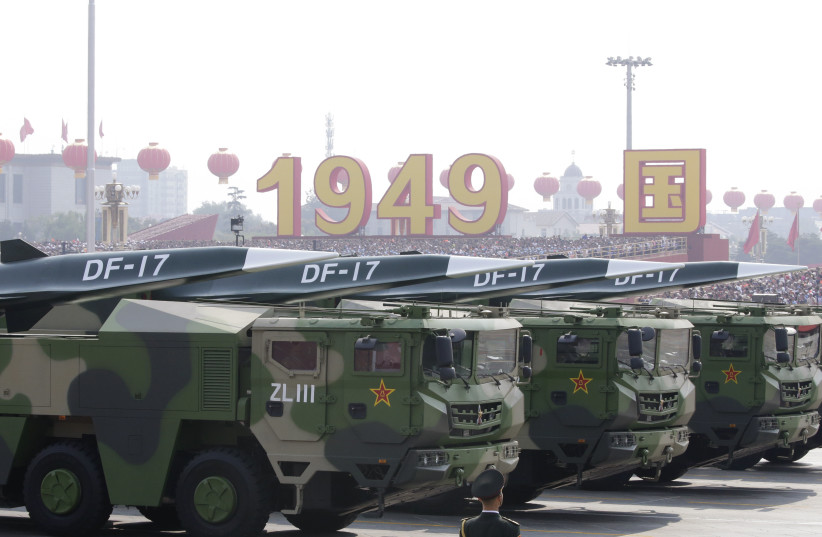"Grand strategy" could best be defined as the long-term planning pursued at the highest level of a nation to ensure and further its interests and imperatives, as well as the means to be employed in order to achieve its long-term objectives.
This obviously would include national security and strategies to ensure it, identifying potential areas of conflict, diagnosing economic advantages and disadvantages and their social implications, etc.
On the evidence of its actions and policies, one may conclude that China, for instance, does have one (whether a correct or erroneous one is open for debate) while as to the US over its last administrations, it is difficult to discern a well-planned or consolidated effort in this direction.
Some observers may claim that President Barack Obama’s “pivot to the Far East” and his successors’ continued pursuance of this does represent a step implementing parts of a “grand strategy.”
But this step in isolation can hardly justify such a view – while only time will tell if the Biden administration’s present and future economic plans will be seen in retrospect as strategic moves or merely as mainly politically motivated stop-gap measures.

America’s apparent lack of a “grand strategy” puts her in a disadvantage facing China’s ambitious plans in the world, aimed at matching and eventually exceeding America’s standing, not least in the field of military strategy.
Vipin Narang, a nuclear security expert at MIT, believes that China is engaging in an “eye-popping” nuclear expansion, while Philip Davidson, a recently retired head of the US Indo-Pacific command notes that “China is doing everything to replace US global leadership,” warning that “America’s future prosperity and security are at stake.”
One strategic expert, former senior Pentagon official Elbridge Colby, who co-wrote the US 2018 National Defense Strategy, asserting that China intends to become a “hegemonic power” in the Far East and beyond, thinks that the US should initiate a limited war “to prevent China or anyone else from dominating a key region in the world” (replacing “China” with “Iran,” one could reach a similar conclusion with regard to the Middle East).
Obviously there are others, less stringent opinions, but they too do not ignore the growing threat from China. That said, none of this can be deemed to be part of an effort to formulate an American “grand strategy.”
The irony is that in the US, the definition and study of “grand strategy” have traditionally made greater strides than in most other countries, but less and less of this has made the transfer from academic institutions and think tanks to government.
And what about Israel in this respect?
Although not defined at the time as a “grand strategy,” most of the seminal decisions made and implemented by David Ben-Gurion and some of his successors (and in effect by the whole Zionist enterprise) were just that.
This includes formulating, planning and implementing Israel’s defense doctrine, “Dimona,” ensuring a close strategic and otherwise relationship with America, defining regional objectives, “conquering the desert, “ingathering of exiles” and their absorption, building new settlements and towns across the country, strengthening infrastructures,” (though leaving some important voids such as how to cope with the Arab minority).
These weren’t mere slogans or rallying cries, but precisely this, i.e. a “grand strategy” – and on the whole a successful one, though also saddling Israel for decades with crony politics and an inefficient semi-socialist economy.
A generation later, some of the more significant achievements initiated or furthered by the Netanyahu governments may also be judged to have been in practice results of an unofficial “grand strategy.”
This includes achieving unprecedented economic growth, a rising standard of living, shrinking unemployment, development of natural resources (natural gas), advanced technology – and at the same time, expanding Israel’s overt and covert security capabilities, strengthening security ties (including during the Obama period) with America, dealing with Iran’s proxies in our near-and-far neighborhood while establishing a pragmatic relationship with Russia – and significantly, after a long period of wasted efforts by previous governments, changing the regional and international reality by forging the Abraham Accords and building bridges with other parts of the Arab World.
Not that there weren’t also missteps and unattained objectives such as reducing the income gap, reforming the country’s defective legal system, introducing electoral reform to achieve better governance, and integrating the strands of Israel’s diverse population, to mention some.
But all in all, the current government is fortunate in being able to benefit from the vestiges of the Netanyahu leadership.
But the question is for how long and on what conditions, given the motley composition of the coalition, which by its own admission does not have a unified approach to many of the major issues challenging Israel: first and foremost, the threat from Iran against the background of a not clearly defined US policy, by and large ignoring the acute threat from a hegemonic and nuclearizing Iran, apparently seeking an unconditional renewal of the defective 2015 JCPOA.
There also is the Palestinian conundrum and its domestic and international implications.
On all those matters and others, the concept of a “grand strategy” or any sort of strategy, except hanging on to power, unfortunately, is not even in sight.
The writer, also a former MK, served as ambassador to the US from 1990-1993 and 1998-2000.
